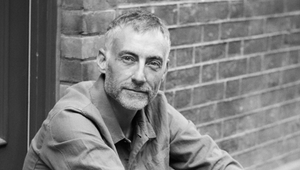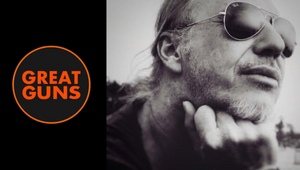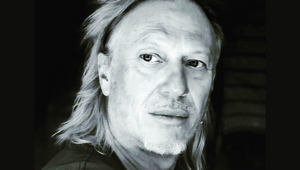
Harrowing Black Lives Matter Film Reveals Extent of Police Brutality in the US

The murder of George Floyd last month has sparked a wave of Black Lives Matter protests across the globe – and with such protests come renewed conversations around police brutality, discrimination, and racism in society.
As a personal response to the murder of George Floyd and the Black Lives Matter movement, Great Guns director Meena Ayittey has launched a harrowing new short, cataloguing the murders of innocent people in a way that doesn’t shirk away from the violence affecting society. Entitled ‘Mama’, the film includes a powerful monologue from Arkansas State Senator Stephanie Flowers, and footage from police brutality across the US.
Speaking of ‘Mama’, Meena says: “There are no words that can describe that feeling in the pit of my stomach when I watched George Floyd being murdered on camera. I was driven by disbelief and anger when I conceived the idea for this project.
The footage that we see of regular shootings of unarmed black men in the USA was more powerful than anything that I could film myself so I wanted to make that the main focus of the film. We have seen these police shootings so many times that it can be almost easy to become immune to the grotesque brutality embedded in these images. I wanted to catalogue the murders of these innocent people in a way that doesn't shirk away from the real violence that people in our society are experiencing. The fury and of the speech by senator Flowers held the exact level of intensity I wanted. Her words expressing her anguish for her son's life had a profound impact on me.
For any black or brown person watching these images it's like watching a family member, a father, an uncle, a son, being killed again and again. I feel that both the media and police in the USA in particular, often dehumanise these victims. I wanted to reverse this. I wanted people to remember that George Floyd, Philando Castile, Rodney King, Eric Garner, Michael Brown Jr and all the victims of police brutality had mothers. And to feel that insurmountable and devastating loss that anyone would feel after the murder of a family member.”
Alongside ‘Mama’, Meena has also debuted the trailer for her upcoming documentary entitled 'Black Creative: Race and the Advertising Industry'. The one-hour film will feature a collective of black voices revealing their experiences of working in a predominantly white industry that wants to be more inclusive.
Speaking of her documentary, Meena notes: “It was hard to ignore the sense of irony I felt as I kept hearing talk of 'diversity' within the world of advertising and the creative industries, and yet time and time again I was the often the only black person in the room. It dawned on me that in the world of advertising, where I have worked for several years, despite all the talk, very little was changing.
I wanted to hear from the other black voices in the industry; what they felt the issues were and most importantly, how we could move forward in a positive way. I wanted this to be a collective of black voices revealing their experiences of being black in a predominantly white industry that wants to be more inclusive. It is akin to an instruction manual to the advertising industry which is in dire need of a shake-up in terms of diversity and inclusion.
I actually had the idea for this project in later 2019. It just so happened that most of the people I had approached to be part of this project were available and equally passionate about this topic. We shot over four days in November 2019, only a few months before Joaquin Phoenix gave fiery speeches admonishing both the Oscars and the BAFTAs for their lack of inclusion and 'systematic racism'.
We were all prepared to go live with the trailer and then the global pandemic hit us. And then the tragic murder of George Floyd. The revulsion at what happened to Floyd has sparked a flame of rage across the world. It feels as though people and companies are now asking themselves 'what do we stand for?' The creative industries are again, for the most part taking a hard look at themselves and their demographics. I feel that we are on the verge of a revolution. People are now feeling empowered to speak up against any injustices and discrimination. I hope that my film can play a small part in changing the narrative of how black and brown people are seen.”














